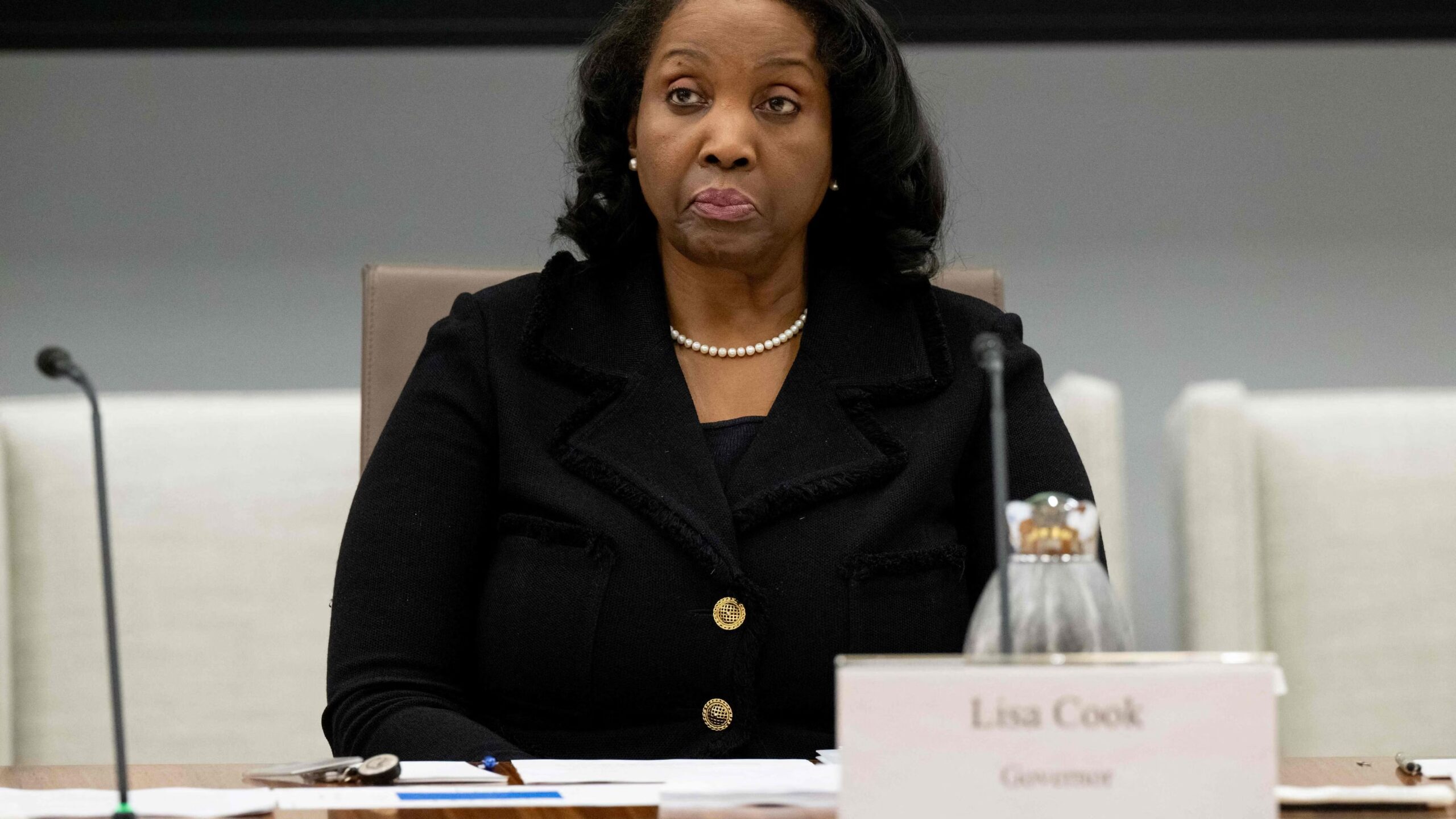
President Donald Trump took his effort to remove a governor from the Federal Reserve to the Supreme Court on Thursday, asking the justices to remove Lisa Cook from the powerful board. The appeal was filed a day after the Fed cut interest rates for the first time in months. The administration’s emergency appeal places the issue of Fed independence—a question of monumental significance for the U.S. economy—onto the court’s docket. If Trump is successful in dismissing Cook, it would be the first time a Fed governor was fired by a president in the central bank’s 111-year history.
The administration’s appeal alleges that Cook committed mortgage fraud by reporting two different homes as her primary residence, a practice that can yield better loan terms. The administration stated, “the president may reasonably determine that interest rates paid by the American people should not be set by a governor who appears to have lied about facts material to the interest rates she secured for herself.”
Cook Warns of Market ‘Shock Waves’
In a brief to the court, Cook’s attorneys warned that her removal could threaten economic stability, sending “shock waves” through the markets and raising broader questions about the independence of the central bank. They argued that temporarily removing her from her post would “subvert the Federal Reserve’s historical independence and disrupt the American economy,” risking “shock waves in the financial markets that could not easily be undone.”
Cook’s argument was a response to Trump’s request for a short-term order from Chief Justice John Roberts to remove her while the Supreme Court considers the case.
A federal court on September 10 blocked Cook’s dismissal, ruling that Trump had not “identified anything related to Cook’s conduct or job performance as a board member that would indicate that she is harming the board or the public interest.” This decision was upheld on appeal by the D.C. Circuit Court, which noted that the administration had not provided Cook with “meaningful notice or opportunity to respond to the allegations against her.”
The legal debate centers on who gets to define “cause” for a governor’s removal. Trump’s administration argues that the allegations against Cook constitute sufficient cause and that courts should defer to the president’s judgment. A dissenting judge on the appeals court, however, wrote that the allegations “could constitute mortgage fraud if she acted knowingly, and that is a felony offense.” The administration has described the lower court decisions as “yet another case of improper judicial interference with the president’s removal authority.”
Wider Context of Presidential Power
Just before the Fed’s meeting this week, a new governor was sworn in: Stephen Miran, a Trump appointee who will remain a White House economic adviser. When asked about Miran’s arrival and any implications for Fed independence, Chairman Jerome Powell said the agency is “strongly committed to maintaining our independence.” Meanwhile, the Supreme Court separately agreed to hear arguments in a major case involving the president’s use of sweeping global tariffs. Arguments for the tariffs case are scheduled for November 5, setting up another significant legal showdown over the centerpiece of the administration’s economic agenda.
Author’s Opinion
This case represents a critical test of the Federal Reserve’s long-standing independence from political influence. While the legal arguments about a president’s removal authority are central to the case, the underlying issue is the Trump administration’s desire to control monetary policy. The outcome of this case will set a powerful precedent, either reinforcing the central bank’s autonomy in a polarized political environment or opening the door for future presidents to use legal challenges to pressure the Fed to conform to their economic agenda. This battle is about far more than the conduct of a single governor; it is a fundamental debate over the separation of economic and political power in the United States.
Featured image credit: Heute
For more stories like it, click the +Follow button at the top of this page to follow us.
